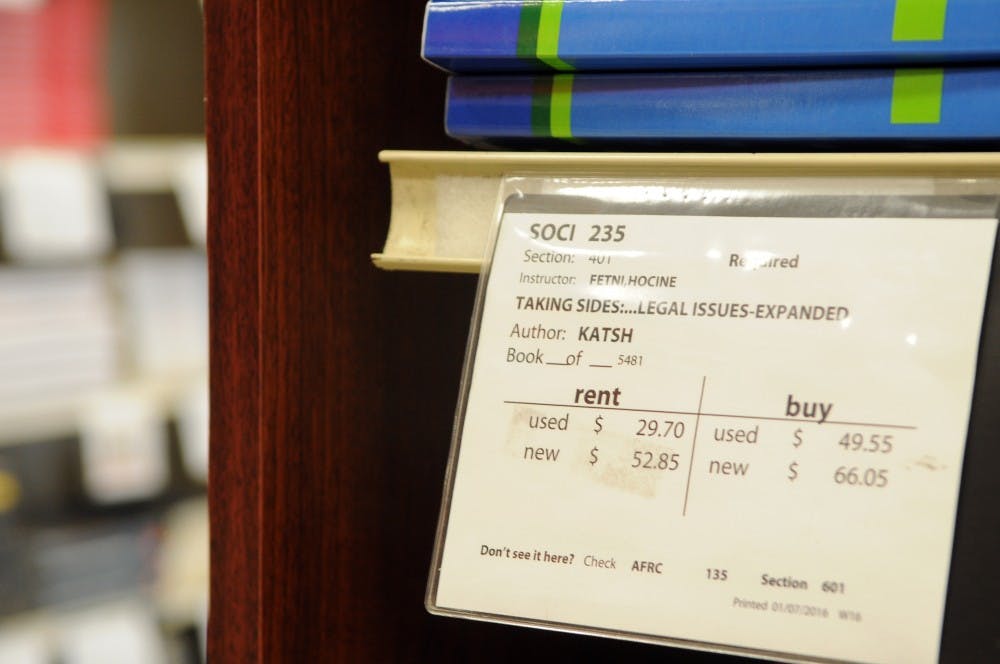
Renting, rather than purchasing digitally, seems to be the trend amongst college students.
Credit: Antoni GierczakSix years ago, renting a book from the Penn Bookstore was unheard of.
Now, more than 80 percent of titles are available for rent. As the Penn Bookstore has increasingly offered more affordable options, the number of textbooks rented or bought from the Penn Bookstore has increased. On Jan. 12, the Penn Bookstore reached out to students in an email, reminding them that the majority of books can be rented and that renting course materials can save up to 75 percent of the original cost.

“The Penn Bookstore recognizes that cost-savings remains an important priority for students,” the email read, noting that “students have many choices as to where they buy books.”
Christopher Bradie, the associate vice president of the Penn Business Services Division, discussed the growing trend of book rentals as prices of textbooks have climbed.
“More students [buy] books in terms of the unit sold because they’re taking advantage of saving actions,” Bradie said. “But it’s been a long trajectory — I can date back to 2005 when we really started concentrating our efforts and really focused on affordability as an institution.”
When Barnes & Noble began offering textbook rentals in 2010, it found that 40 percent of students would, when given the choice, choose to rent a book instead of buying it. In 2011, Barnes & Noble incorporated textbook rental as a standing option in many schools.
The company was surprised to see that rental textbooks, which Penn Bookstore Manager Katie Woodward estimated as costing around 35 to 85 percent of the price of a new textbook, were a more popular option than digital books, which she estimated as costing 50 to 60 percent of the price of a new textbook.
“People were always very pleasantly surprised when they found out that they could use [physical rental books] just like a brand new book they had bought on their own,” Bradie said. “With digital, students have to embrace a new way of reading and consuming information, so that didn’t catch on as quickly as some people thought that it would.”
The Daily Pennsylvanian is an independent, student-run newspaper. Please consider making a donation to support the coverage that shapes the University. Your generosity ensures a future of strong journalism at Penn.
DonatePlease note All comments are eligible for publication in The Daily Pennsylvanian.




